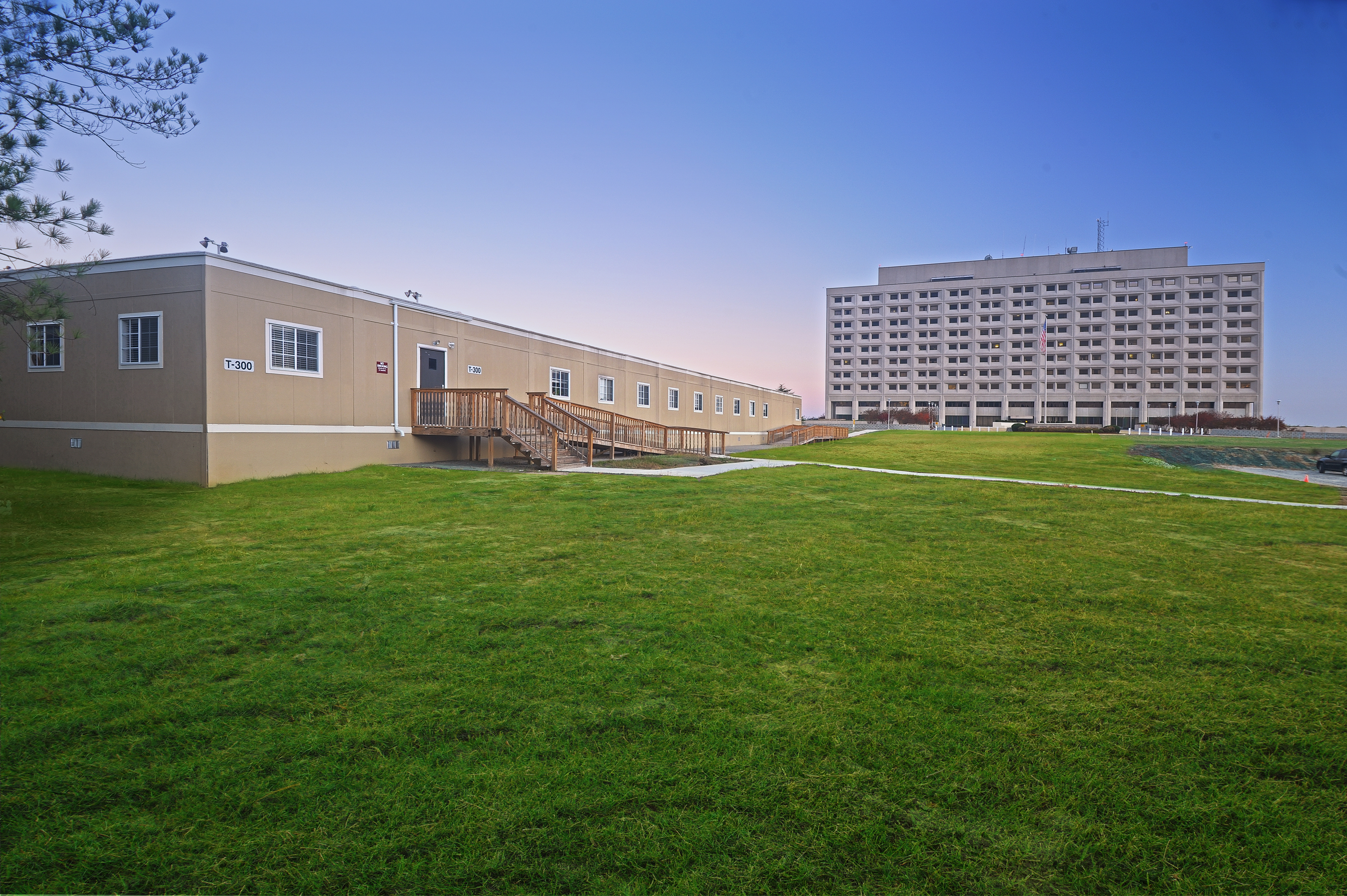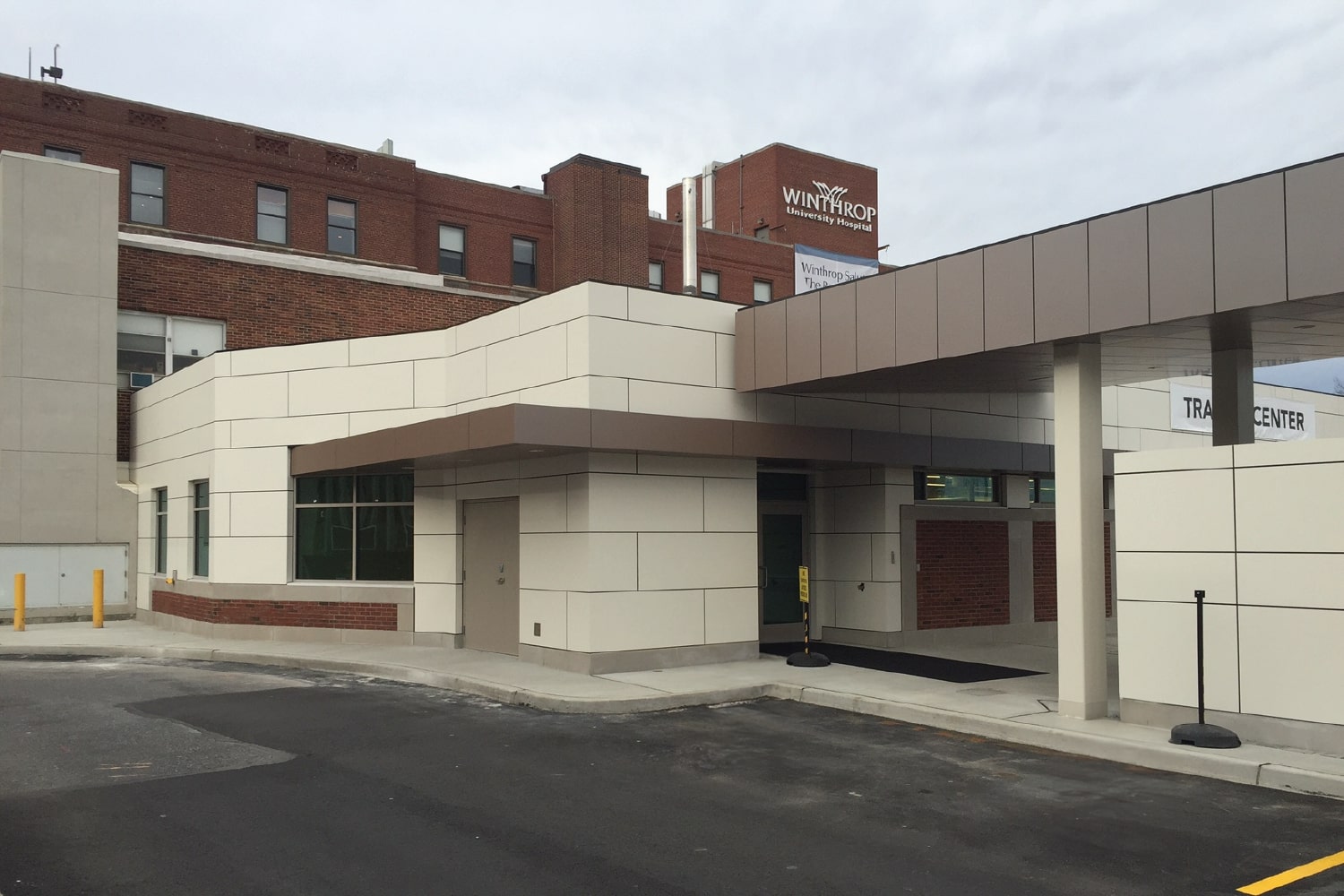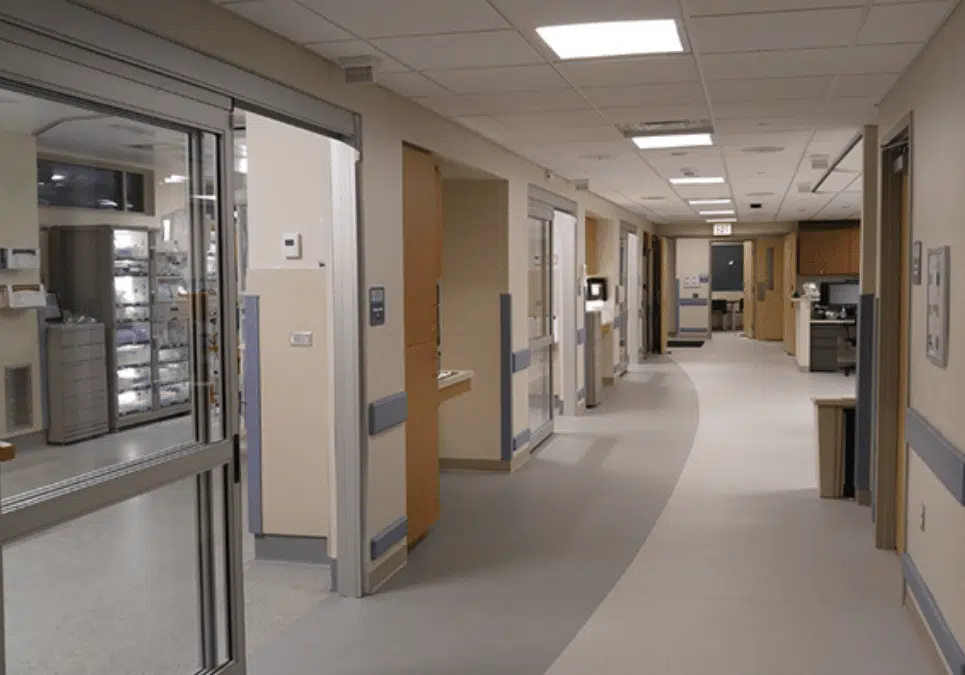Modular Hospital Construction: How it Works and Why it Matters
Space and capacity constraints are nothing new for the healthcare industry. During the COVID-19 global pandemic, the crisis stretched those already thin margins past the breaking point — leaving healthcare workers, hospital administrators, and contractors scrambling to build more effective hospital spaces in record time. Modular hospital construction offers an efficient yet reliable solution to the common capacity issues that affect hospitals all across the world.
So how does modular hospital construction work? How can you implement a modular solution in your healthcare facility? If you’re ready to dive into the world of modular and see what these novel solutions can do for your team, read on.
Time to start developing a modular construction solution for your hospital or healthcare space? Mobile Modular is a trusted name in the modular construction industry and has a track record of successful hospital construction projects under its belt. If you’re interested in implementing modular onto your campus, or want to explore your options, reach out today at 866-395-7309.
How Does Modular Hospital Construction Work?
One of the biggest issues that face construction sites and contractors is limitations on space, time, budget, and labor. Trying to cut costs or cut workers usually translates to poorer build quality and unhappy clients. Additionally, going over budget, or taking too much time on-site, can present similar problems for contractors and clients. With a laundry list of potential pain points, novel approaches to construction are needed to match the growing needs of the many industries looking for flexible and reliable building methods.
Modular construction presents some unique solutions to some of the longest standing issues facing conventional construction projects. As such, many industries
from education to workforce housing are starting to lean on modular construction to inject projects with illuminating perspectives on how to build, where to build and how much labor you need on-site for project completion.
At its core, modular construction is the process of off-site construction of prefabricated modules. In controlled warehouse settings, workers and high-tech automated machinery construct modules in many different layouts and designs each built to match specific, or general, use-cases. After factory construction, modules can then make their way to job sites across the country through painless transportation options.
For the healthcare industry, these modules could be all kinds of useful spaces. From dental clinics to group therapy spaces, modular healthcare buildings offer hospitals and other facilities easy access to extra space that can fit exactly to meet needs.
Prefab Hospital Buildings On-Demand
The beauty of the prefabricated construction s the on-demand nature of the modules. Since construction happens off-site, with enough lead time, modules become a part of your facility with little need for operational downtime. Moreover, with more general applications of modular construction elements, the on-demand nature of pre-fab buildings is even more convenient.
More involved forms of construction like volumetric modular construction still require careful planning and attention. Even still, when compared to traditional construction, the most complicated modular projects outperform in terms of time, budget and quality. But, if you’re searching for easy to install ready-to-go modular office space for hospital administrative staff, the buildings can be ready in no time. Combining different custom and pre-built modules means your team can develop the exact spaces they need to operate smoothly and efficiently.
More Than Just Temporary Space
It’s certainly easy to mistake modular hospital construction as strictly temporary space. Given most people’s preconceived notions that modular is only shipping container homes and construction site trailer offices, it also makes sense. In reality, though, modular construction presents one of the most flexible approaches to construction and can fit permanent or temporary installations.
When talking temporary, portable hospital modules are the perfect candidate for shifting space needs. This became especially important when dealing with the unprecedented influx of the COVID-19 global crisis. But other scenarios, like relief efforts for natural disasters, also present a similar challenge. Modules offer easy transportation, setup and break-down, meaning matching capacity needs that are constantly in flux is easy and sustainable.
Permanent solutions are perfect for hospital additions. Since modular is suited for both single module projects or multiple story volumetric style construction, custom-built designs and layouts can easily match any hospital campus. Workers can even move buildings on-site, meaning even after installation and setup, custom configurations are possible.
Different Types of Modular Hospital Units for Every Need
Since the majority of modular construction happens off-site, custom designs can easily become a part of your project’s development. Sure, multi-purpose patient rooms might be the first thing to come to mind. But, in reality, the custom-designed nature of modular building means even specialized rooms and modules are available just as conveniently.
The reality of modular hospital construction is that regardless of the building purpose, most of the work is already finished off-site when it comes time to install. Time spent developing and building with traditional methods isn’t as much of a factor. This opens up virtually unlimited design ideas and layouts. Here are a few to consider:
- Bathroom buildings
- On-site laboratories
- Exam and consultation rooms
- Wards
- Pharmacies
- Imaging suites
- Primary care clinics
These, of course, are a handful of possibilities. If you’re looking for custom rooms with a specific purpose in mind, the team at Mobile Modular can help you navigate the process of modular construction from start to finish. Whether you need modules for disaster relief or something more challenging like a full modular medical center, Mobile Modular has the solutions you need to get the job done.
Benefits of Using Modular Hospital Units
Even with a very limited introduction to modular hospital construction, you can probably grasp some of the benefits of this type of building method. Utilizing prefabricated buildings in your design means you can cut much of the on-site work right out. Really, the only constraints to what modular can do rest in the layout of your facility and the limits of your creativity.
From all sides of the problem, modular building offers some unique advantages over traditional construction methods. Below you’ll find some of the biggest benefits of utilizing modular.
Speed is the Name of the Game
Downtime is not a luxury that many hospitals have. Since modules see most, if not all, of the labor-intensive construction off-site, workers can prep the site in parallel to construction. This means clearing, excavating, grading and foundation work can all happen while the prefabricated buildings are in the factory — shaving off weeks, even months, off the overall construction schedule and plan.
With the advantage of speed, you still enjoy superior build quality. In fact, the precision construction of modular buildings may mean a higher level of quality over traditional methods.
Efficiency from Fabrication to Installation
Wasted materials, wasted labor and wasted time; these are the things that modular construction cuts out of the building process. Not only does the factory-built nature of modular hospital units mean less material waste, but it also means less labor. Given the current shortage of labor and materials, this is a huge advantage over conventional methods.
Moreover, producing the majority of buildings in a factory setting means construction is as streamlined as possible. This tackles waste and efficiency issues head-on and at the source. This can save you time and money over more traditional approaches to building.
Custom Prefab Hospital Designs
We’ve already touched on the customizability of modular hospital construction, but it’s more than specialty buildings. Using modular also means those custom designs are repeatable. If you need more than one, manufacturing is just as easy as using general-purpose buildings. This means you can expect consistency in construction as well as a cost-certainty since all materials and orders will fit the same specifications.
This has a profound effect on the entire construction process. Limiting the variables in construction means that instead of shifting goals and stressed budgets, you know how much each building will cost you in a more controlled and managed way.
Solving Modern Problems with Modular Construction
While the benefits of modular construction present many solutions for the healthcare industry, it also can help alleviate pressure from some specific issues. It’s true that efficient production of pre-fab buildings and limited on-site downtime is great for hospitals across the world. But, you could argue those benefits can match almost any industry. The future of healthcare buildings will most likely lean on modular construction far more, and here are a few specific reasons why.
Modular Hospital Construction and COVID-19
Since early 2020, hospitals across the globe have been struggling to keep up with an influx of patients. The global pandemic dealt a decisive blow to the already strained medical infrastructure, and the crisis pressured hospitals to find new ways to tackle space limitations and staffing shortages. Even more than a year into the pandemic, new variants are causing bed shortages in some of the hardest-hit areas.
With an obvious need for general-purpose and specialty temporary medical facilities, modular construction is the perfect choice for emergency response. With modules that make it on-site in no time and with almost little downtime for hospital staff, offering extra space for patients and medical staff provides the much-needed support the industry needs.
Capacity Issues Before the Global Pandemic
Finding the space for patients and staff is certainly not a new problem for hospitals and healthcare facilities. With a growing and aging population, demand for hospital procedures is only going to rise in the future. This paints a capacity issue that transcends the current crisis. Even before the pandemic hit the globe, medical centers were turning away transfer patients — leaving those needing specialty procedures to travel farther for similar care.
Adding prefab hospital buildings to your facility means the extra space for patients and staff is always on standby. Flexible needs to match the number of beds, or any other specialty facility like for testing or operations, can happen with an on-demand quality. This helps alleviate some of the budgetary pressure and allows more people to get the care they deserve.
Innovation that is Disrupting the Industry
The fact is that modular construction is faster, higher quality and often more cost-effective than conventional construction methods. Being able to produce highly specialized buildings off-site and then delivering them without much need for downtime or extra labor is fastly showing signs of becoming a huge disruptor for the construction industry — especially in the medical industry where flexible needs are often unaddressed.
A hurdle to widespread adoption is perception. Some professionals in the medical industry don’t want the risk of being first adopters, while others are fully embracing modular as the future of hospital and medical facility construction. Even with some pushback from the traditional construction industry, contractors can’t deny the rampant shortages in both labor and materials. These issues and costs trickle down to your facility’s budget. With modular, many issues with conventional construction are non-existent — meaning they are not issues for your team or your budget.
Mobile Modular is your Partner in Modular Hospital Construction
If you’re looking to implement some of the solutions we’ve laid out here, the best strategy is to link up with a trusted team in modular construction. Mobile Modular is more than capable of developing lasting and reliable solutions for your hospital or medical facility. Our team is unparalleled in the modular construction industry and has a successful history of working with medical teams and administrative staff to offer unique solutions that exactly fit your needs.
Whether you need extra office space, or a full-fledged modular hospital, the team at Mobile Modular is here to help. Get in touch today to get started with your next modular project.





